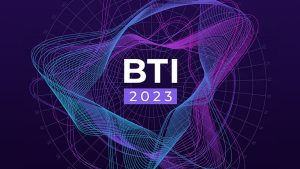Carbon emissions are a board-level concern for companies operating in the energy sector, and our customer, one of the world’s largest companies in this industry, aims to be net zero across its entire operations on an absolute basis by 2050 or sooner.
This means that all IT and digital systems need to minimise the resource consumption (and therefore carbon emissions and operational cost) of the ever-expanding IT estate, whilst they need to be deployed and upgraded with increasing frequency and at high speed to keep up with the business demand for change.
The challenge of QA in cloud migration and DevOps transformation
In this transition to a cloud-centric approach and DevOps delivery model, our customer’s IT department needs:
- A new software delivery and testing framework to replace the legacy framework which was no longer fast or scalable enough to match the business demand.
E.g. Process, toolchain and infrastructure for performance testing
- Integrating testing processes seamlessly into the software development and deployment pipeline – requiring careful coordination and risk mitigation to maintain operational integrity.
That is why our customer requires a partner with extensive domain expertise and proven methods for testing and assuring technology rollouts to create a platform that keeps pace with enterprise change while supporting ongoing sustainability initiatives.
Expleo solution: cloud-based Performance testing framework & observability capability
Using AWS as the platform of choice, Expleo designed a cloud-centric solution that used Amazon EC2 (Elastic Compute Cloud) services to host our chosen performance test framework. Providing on-demand, scalable computing capacity in the AWS Cloud, Amazon EC2 reduces hardware costs and allows our team to develop and deploy applications faster.
Expleo used its proven, proprietary application and component deployment templates as part of this toolchain. This was supplemented with our custom Python code to enable large, globally distributed deployment teams to run full-scale production loads for multiple projects.
This allowed the client to easily scale computing resources up or down as project demands fluctuated. Expleo used different AWS instance classes – which are tailored combinations of CPU, memory, storage, and network capabilities, each designed to cater to specific workload requirements – ensuring that the most cost-effective instance classes were always provisioned to meet the varying needs of projects.
Expleo’s non-functional test framework enabled testing to be run as a service, on demand. The framework seamlessly integrated into a development team’s CI/CD process, with support for both Jenkins and Azure DevOps (ADO) pipelines. When code was merged, built and deployed, a non-functional testing pipeline was triggered from the developer pipeline, orchestrating the provisioning of test infrastructure and executing of a series of non-functional tests, including performance, stress and resiliency tests.
Expleo’s Software QA analysts and Software test automation engineers worked with architects, operations teams and developers to deliver an optimized monitoring & observability capability – providing guidance on code instrumentation, error and event logging best practices, configuring performance monitoring tools and building Splunk dashboards to deliver business and operational insights.
Benefits for the clients: high-velocity software development and cost-saving
The collaboration with Expleo enabled the global energy company to revolutionize its software delivery, aligning with sustainability goals while achieving significant operational and cost efficiencies:
- Reduction of energy-intensive legacy data centers through AWS EC2 utilization.
- Improvement of three of the four key Google DORA metrics:
- 4X increase in Software deployment frequency (annually)
- Reduction in the change failure rate
- Reduction in the meantime to recovery for production incidents
- Over $250K in annual savings on one project’s infrastructure and licensing costs by moving away from fixed data centre servers to a flexible consumption-based model on AWS.
- Observability:
- Continuous monitoring capabilities for prompt issue resolution, improving overall software reliability and performance.
- Real-time visibility of costs, enabling accurate infrastructure cost planning.






